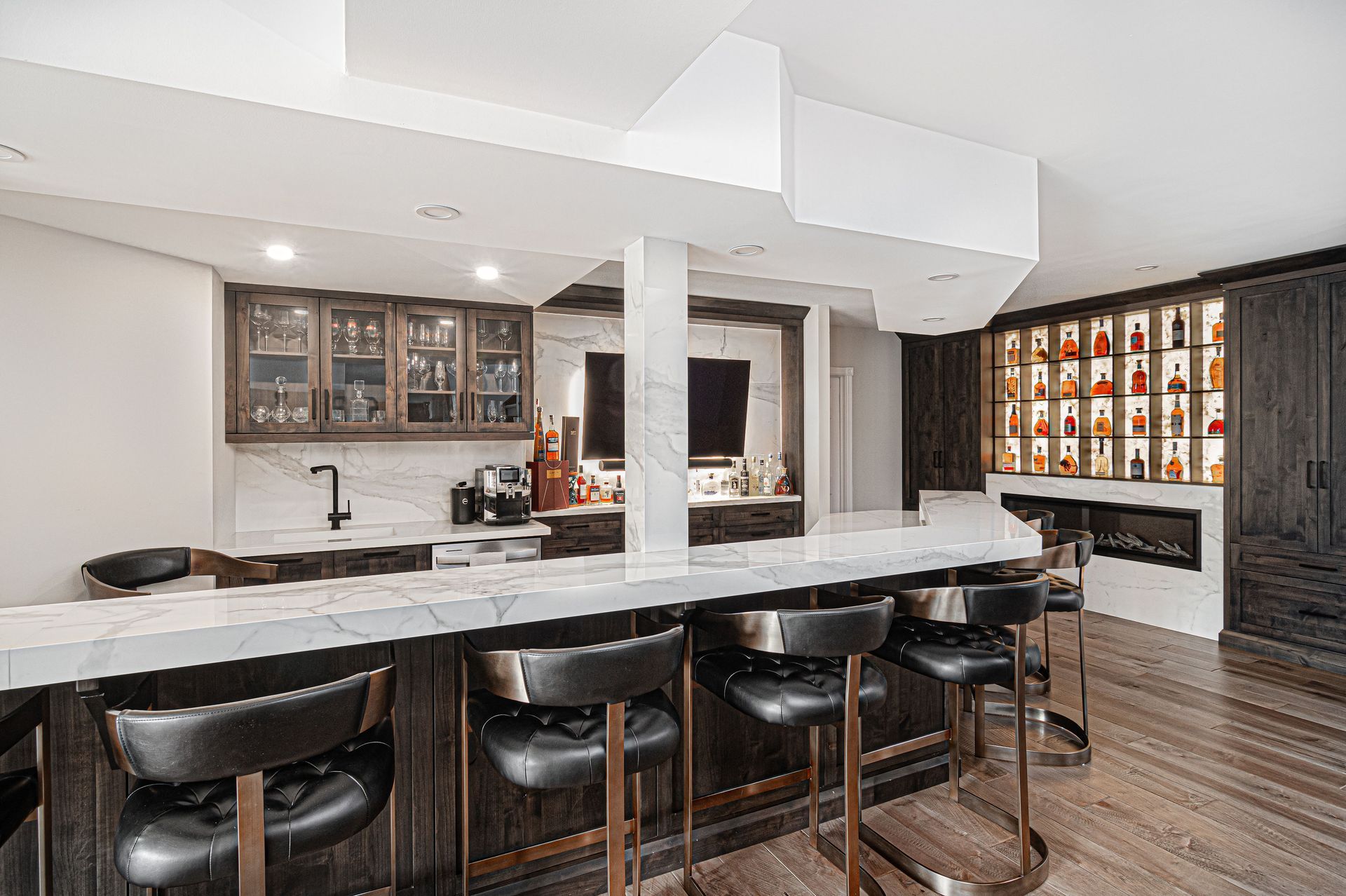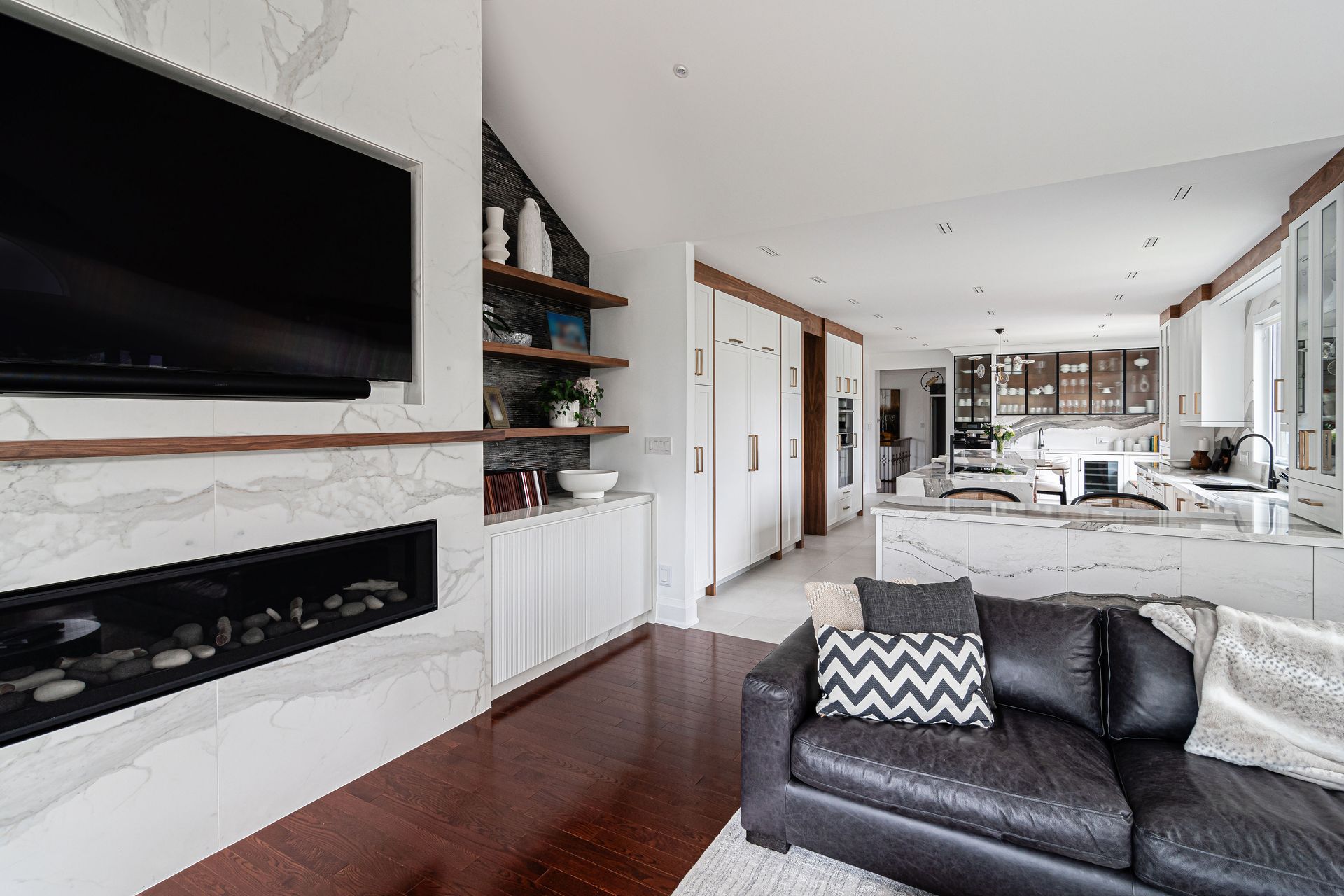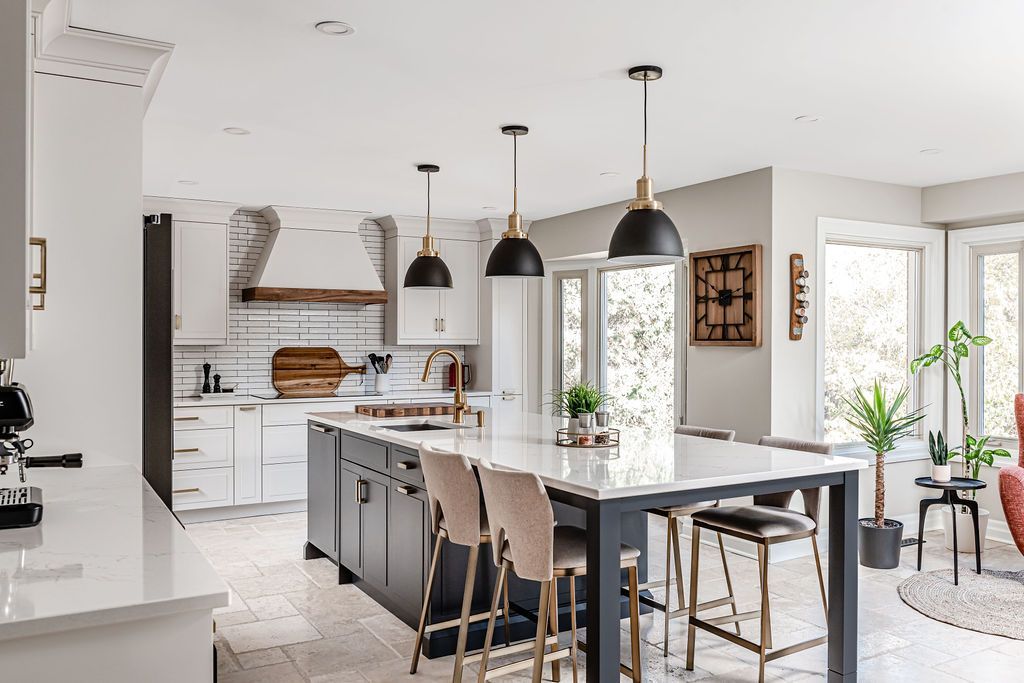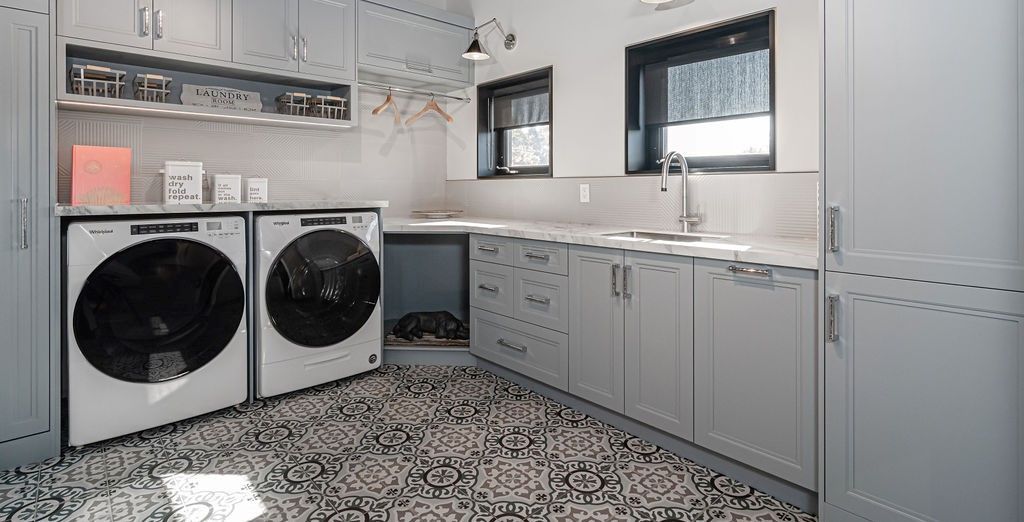2025 Toronto Home Renovation Permit Process Made Easy
Introduction to Toronto's Permit Process
Getting your Toronto home ready for a big reno in 2025? Before you get too excited about picking out that perfect backsplash or those trendy light fixtures, there’s one thing you need to know: the permit process. In Toronto, any significant home renovation means you gotta go through the city’s system to get the necessary approvals. Think of it as a vital step to make sure your project runs smoothly and legally.
So, what’s the deal with permits? Basically, the city wants to make sure any big changes to your home are safe and up to code. Whether it’s building an addition, taking down walls, or updating major systems like plumbing and electrical, you’ll need to get the green light from the city. It's a bit of a process, but totally doable with the right info and some patience.
Understanding the permit process upfront can save you a lot of headaches down the road. Trust, it’s worth it. You'll need to be aware of what kind of reno work actually needs a permit and the steps involved in applying. But don't worry, this guide’s got your back. Just follow along and you'll be navigating the permit maze like a pro in no time. Now, let's get into the nitty-gritty of what kinds of projects need permits and how to get started.
Types of Renovations Requiring Permits
Planning a big change to your home? Know that not everything needs a permit, but plenty does. Adding new rooms or expanding your space? You’ll need a permit. Taking down walls to create an open concept? Yep, permit required. Even updating your plumbing or electrical systems usually means getting the city's OK.
But don't worry about the small stuff like painting your walls or switching out your kitchen cabinets; those are generally permit-free. It's always a good idea to double-check with Toronto's specific guidelines, just to stay on the safe side. When unsure, asking is better than guessing.
Steps to Apply for a Home Renovation Permit
So, you’re all set to kick off that renovation? Hold up! First, you'll need to get your paperwork in order. Start by gathering essential documents like your design plans and property surveys. You might also need some zoning info, depending on what you're planning.
Next up, head to the City of Toronto's website. They've made the process pretty straightforward and mostly online, which is a huge time-saver. Just follow the instructions on the site to submit your application. Double-check everything before you hit send. Missing details or mistakes can slow things down big time.
Once you’ve submitted, keep an eye on your email for any updates or requests for additional info. If you hear nothing for a while, don’t be shy about following up. Sometimes things get held up, and a little nudge can move things along.
It’s also a good idea to chat with a local architect or contractor who’s familiar with Toronto’s permit process. They can offer insights and maybe even help with the paperwork. Plus, they might catch things you missed.
Remember, the goal here is to make sure everything’s filled out correctly to avoid unnecessary delays. So take your time, be thorough, and you’ll be swinging that sledgehammer before you know it.
Understanding Permit Fees and Timelines
Permit fees? They can add up. The cost really depends on what kind of renovation you’re doing and how big it is. You could be looking at a few hundred bucks for simpler projects, but more extensive work can hit the thousand-dollar range. Best to set aside some cash for this right from the start so you’re not caught off guard.
Now, about the waiting game. Once you’ve submitted your application, the timeline for getting that precious permit can vary. Simple projects might get the green light in a few weeks, while more complex ones could take a few months. Yeah, it’s a bit of a patience test, but totally manageable if you plan ahead.
Pro tip: keep an eye on your email for any follow-ups or additional info requests from the city. Responding quickly can keep things moving smoothly. If it feels like it’s taking forever, don’t be afraid to check in. Sometimes a little nudge can make all the difference.
Also, consider chatting with a local architect or contractor. They often have the inside scoop on how long certain permits usually take and might offer tips to speed things up.
All in all, just stay organized and be ready for a bit of a wait. Planning for both the fees and the time it takes can help keep your reno project on track. See how we manage our projects.
Tips for a Smooth Permit Approval
To make sure your permit gets approved without a hitch, pay attention to a few key things. First, make sure all your paperwork is in order. Double-check that your application is complete and that every document requested is included. Missing stuff is a surefire way to slow things down. Next, precision is crucial. Make sure all measurements and details in your design plans match up. Little errors can cause big delays.
If you’re not super confident in handling all this on your own, don’t hesitate to get some expert help. Local architects and contractors who are familiar with Toronto’s permit process can be lifesavers. They know what to look out for and can spot potential issues before they become problems.
Keeping an open line of communication with the city is also a smart move. After you submit your application, stay on top of any emails or calls. If the city asks for additional info, get it to them ASAP. Quick responses can keep your application moving forward smoothly.
Lastly, timing matters. Submit your application well before you plan to start your renovation. Rushing things last minute is a recipe for stress. The earlier you get started, the more time you have to deal with any hiccups that might come up.
Remember, a little preparation goes a long way in making the permit process less of a hassle. Get your ducks in a row, lean on experts when needed, and stay proactive.
What to Do if Your Permit is Denied
Alright, so the permit didn’t go through. No biggie. First off, take a deep breath and read through the city’s feedback carefully. They’ll usually tell you why it got denied—maybe some info was missing or there’s a zoning issue. Don’t panic - most of the time, these are things you can fix. If you need help, let us know.
Start by addressing each point they mentioned. If it's missing paperwork, get that sorted. If it's something more complex like a zoning problem, you might need to adjust your plans a bit. Sometimes it helps to have a quick chat with a city official to get a better understanding of what needs to change. They can provide some solid insights and maybe even give you a few tips on how to improve your application.
Once you've made the necessary adjustments, revise your application and send it back in. Double-check everything this time around to make sure nothing’s overlooked. If you’re unsure about anything, it could be a good idea to consult with a local architect or contractor who’s been through the process before. They can spot issues you might miss and guide you on making the right changes.
Remember, it’s all about getting everything in line with the city’s requirements. With a bit of tweaking and patience, you’ll likely get that green light soon enough. Keep your cool, fix what needs fixing, and resubmit. You got this.
Staying Compliant During Renovations
Congrats on getting your permit! Now the real fun begins, but remember to stay on top of compliance. Stick to the approved plans like glue. Any changes, even small ones, could mean trouble if they don’t get the OK from the city. It’s a good idea to keep a close eye on your contractors to ensure they’re following the rules.
Regular inspections are part of the deal, so expect them at different stages of your project. Make sure everything’s up to code and that you’re ready for these check-ins. Passing these inspections is crucial for getting that final thumbs up when your reno is done. If an inspector finds something off, fix it ASAP to keep things moving.
It’s smart to keep all your paperwork organized, too. That means permits, inspection reports, and any correspondence with the city. Having everything in one place makes it easier if you need to reference something or if any questions come up.
If something does go sideways, like a failed inspection, don’t stress. Address the issue, make the necessary corrections, and schedule a re-inspection. Staying proactive and communicative with the city can save you a lot of headaches.
Remember, following the rules during the reno helps avoid future issues. The last thing you want is to finish your dream project only to find out there are compliance problems. So keep everything above board, get those inspections done, and you’ll wrap up your reno on a high note. Keep your cool, stay organized, and your home will be looking awesome in no time.
For detailed guidance on building permits and regulations in Toronto, check out the City of Toronto's official resources: https://www.toronto.ca/services-payments/building-construction. This site provides comprehensive information on the necessary steps and documentation for your renovation project. You can find specific details on permits required for plumbing and electrical work, as well as any structural changes you might be planning.










